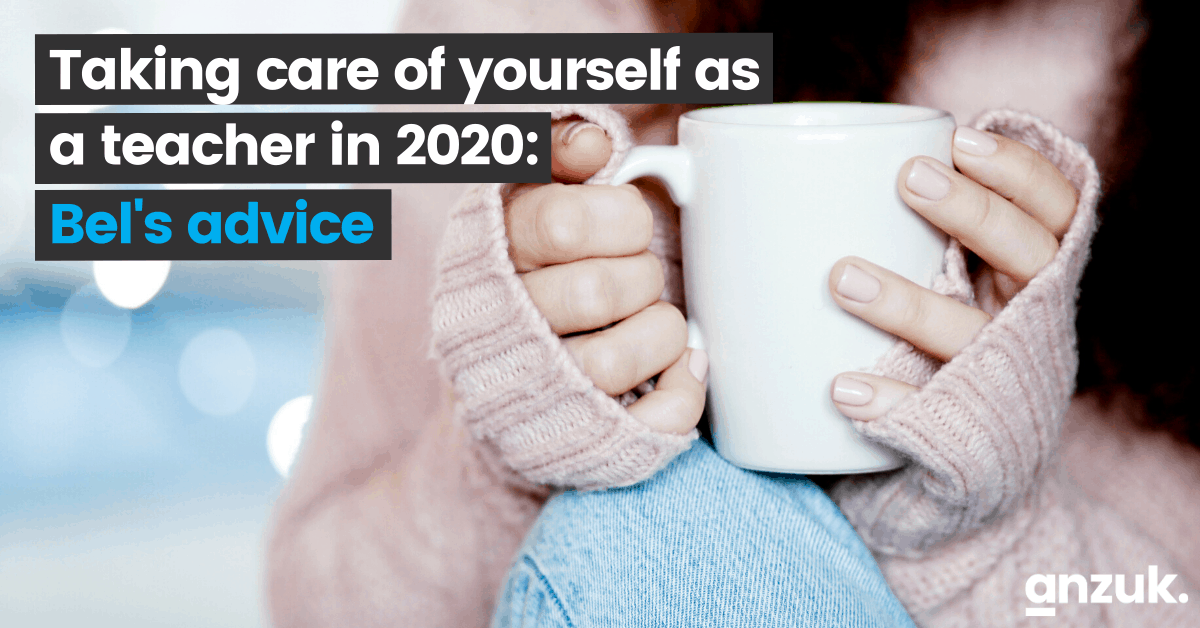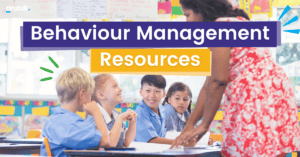We met with Bel, an ex Teacher who has taught across Primary and Secondary in Australia and the UK, then an Education Consultant for 18 months and now a People and Culture assistant for anzuk London. Bel shares her experience of how best to take care of yourself, particularly as an Educator, during the craziest year most of us have ever experienced. Continue to read her blog below on the best advise to take care of yourself:
“Teachers only work 9-3 and have so many school holidays – they don’t actually do that much work”. How often have you heard a comment along these lines and felt steam comes out of your ears? This is how my partner liked to rile me up before he flat shared with three teachers in London and boy did his tune change! The expectations of teachers go well beyond the actual job description. We are teachers yes, but we perform a myriad of other duties such as first aider, friendship counsellor, parental advisor, one to one tutor, musician, painter, athlete.. And many more.
For years now there has been a shortage of qualified teachers in the UK. There are plenty of articles and studies about teachers leaving the profession some as high as one in five within their first five years in the industry. Latest studies from registered charity Education Support states that 75% of all education staff have faced physical or mental health issues in the last two years because of their work and 53% have considered leaving as a result. No job is perfect and it’s no secret that the workload at times can be intense but there are definitely varying factors contributing to these statistics. Now, more than ever, we are hearing about well-being and self-care – but what does that actually mean? As a teacher who has experienced her fair share of breakdowns and near burn outs, I wanted to share what I have learnt along with advice from other teachers and mental health organisations so you as educators can maintain more balance and keep loving being a teacher.
Have a daily routine
Most teachers are naturally organised, we have a set structure within our working day but what does the rest of your day look like? You don’t need to be scheduled to the minute but having a regular wake up time, breakfast routine, after work routine and bedtime can really help manage stress, anxiety, depression and other mental health issues. The reasoning behind this is, according to Lancet Psychiatry, that when we organise ourselves and know what to expect, it’s easier to actively work towards counteracting the thoughts and symptoms of these various mental health conditions. Their studies also show that people with active daytime routines also have healthier sleep cycles.
To manage a realistic daily routine, pinpoint what activities are important and beneficial to you. Do you like to exercise daily or a few times a week? Do you prefer morning or evening workouts and what kind of exercise do you actually enjoy? Do you find that you spend forever choosing what to wear? Try laying out your clothes the night before. When you get home, what makes you happy? Do you like to go a walk, cook with your flatmates and watch a bit of tele or read the latest crime thriller? If you can, try to stick to hobbies away from your devices.
Your routine will be different to the next person’s, just make sure it works for you.
Set and adhere to clear deadlines (for yourself & others)
How many times have you dropped everything to help someone else or just stuck around for another hour to mark those extra papers? Teachers love to help others but it’s important to not overload ourselves. If someone asks you to do something, you can still help but set realistic expectations and timelines. Take a moment to think, is this urgent? Is this something I can do effectively at short notice? Rather than dropping everything then and there when you have a full day of teaching, say something like “I’d be happy to look over these assessments and come back to you by Thursday lunch time”. This goes the same for yourself. If you have 60 papers to mark within the week, schedule time to mark a set amount – and stick to it! Your body and mind need that break. You may feel like there is always so much to do but there is always going to be more to do.
A very important tip – don’t be afraid to ask for help. If you genuinely need assistance with a task, whether it’s not knowing the actual content or just needing more support to meet a deadline, then ask! Just make sure you communicate you request effectively and not right at the last minute.
Nourish your body
How many teachers do you know who run on coffee and the odd fruit or snack bar they can inhale in the 5 minutes they have between teaching, marking and playground duty? We tell our students to eat healthy a breakfast, so they have the energy to learn, we even have government initiatives to help to make this happen, so why don’t we all follow this advice ourselves? After all, WHO reports that maintaining a balanced and healthy diet can raise your productivity levels by 20 percent on average.
I’m sure for many, we know this, but it boils down to a lack of time. This is where having a daily routine and setting clear deadlines can help alleviate this barrier. Use the weekend or one weeknight to buy healthy snacks for the week and prepare some simple lunches (a good balance of protein, carbs and healthy fats to keep you full). If you have the facilities and want to avoid a squashed sandwich, bring the ingredients into school and make your food fresh. It’s okay to buy a school dinner every now and then on those manic days but, especially in secondary schools, there are way more nutritious foods you could be fuelling your body with than soggy chips and beans. Lastly, keep those hydration levels up! One trick I find useful is to always have my water bottle in class with me and refill between lessons and on break times. There’s nothing worse than trying to push through the day with a dehydration headache and thirty plus lively kids. Check out some links at the end of this blog for healthy work lunches, snacks and ideas.
Take your teacher hat off and just be you.
You are more than a teacher, which can be easy to forget at times. Myself and many of my teacher friends are strict when it comes to only doing schoolwork when in school. Yes, if you need to stay a bit later occasionally to finish marking exams, that’s part of the job, but taking books home each night is not going to allow your mind to switch off and refresh for the next day. Not to mention, bad for the back!
A really great way to ensure you don’t slip into these habits is to find a hobby you enjoy. Hobbies are not just for kids. For me, it’s exercise and cooking. Before I had a bike, I also enjoyed reading on my long tube journey home from school. Not being a big reader as a kid, I really found a real sense of accomplishment when I was able to read so many books each year. For some, it’s a form of crafting, learning an instrument, meditation or checking out new restaurants on the scene.
Very wise words from a friend of mine – “Try to avoid bringing up your job when talking to friends and colleagues outside the school environment. Yes, we all need our time to share and vent but unless it’s a funny anecdote, or someone has genuinely asked about your work, it can become toxic and boring for others to always hear about”.
Remind yourself why you got into teaching
It’s no secret that the education system, especially in the UK, is very much data driven. The intentions are good, larger bodies needing to see statistics to identify where the needs are for schools, regions, subjects etc. But at the end of the day, our students are individuals who are more than a number and all the data analysis in the world might not get to the root of their needs. We as teachers know this and fight this internal battle of following procedures and ticking boxes with wanting to give each of our students their best education experience.
So I ask you now to take a moment to reflect. Why education? What moments brighten your day? Did a student share their completed creative writing story with you with a huge smile across their face? Was one of your kids bouncing off the walls after finally being able to score a goal in football? Did they show personal growth with their social interactions? Just be in that moment, how it makes you feel, how your students feel, and know… YOU are an enormous part of that.
My final word of advice is to join a teacher’s union. It’s a bit like travel insurance. Ideally, you will not need to really go to them for much but it worth the monthly membership if an issue was ever to arise (without the annoying excess insurance fees). I’ve seen and heard of some interesting cases and the unions will have your back. NASWUT, NEU and NUT are some of the big ones in the UK.
I hope you’re able to take something helpful from this. Remind yourself that you are not perfect, and no one should expect perfection from you. You will never be able to give the best to your students if you don’t first look after yourself.
Here are some useful links for you to look through in your own time:
https://www.healthassured.org/blog/healthy-eating-to-improve-productivity-in-the-workplace/
https://www.bbcgoodfood.com/howto/guide/healthy-lunch-ideas-work






















